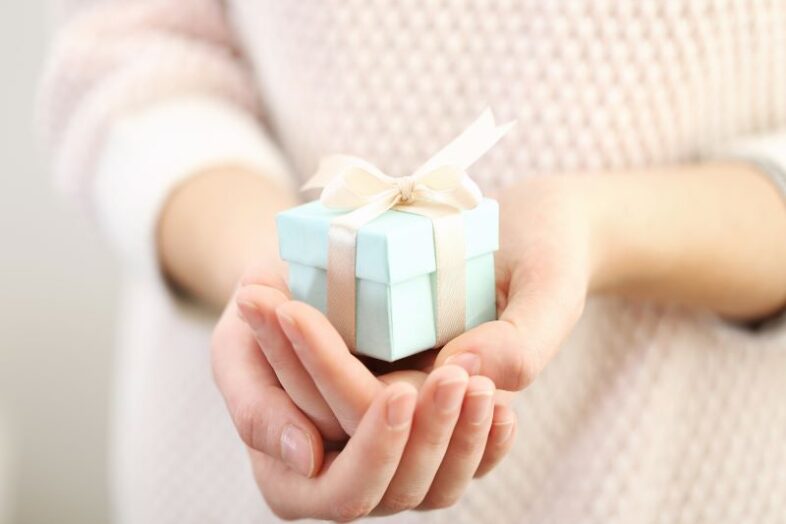
Not so long ago, we held a ‘TTC lunch’ for men and women who had been told that using a donor egg was their only option if they wanted to become parents. It was very emotional to start with. You could feel the nerves and apprehension in the room, but as soon as people started talking to each other, all of whom were faced with similar options, the tension started to ease
…and then, our speakers began and the tension disappeared completely. I (Sara) will never forget the speech that fertility Andreia Trigo gave. It made my spine tingle. Her words made me look at the donor route through a completely fresh set of eyes. Here, Andreia tells us a bit about her own fertility journey and looks at some of the strategies that she offers patients when they are faced with a recommendation of egg, sperm or embryo donation.
Little did I know at 17 years of age how much a devastating diagnosis of infertility would affect my life
When the doctor told me I had been born without a uterus, I was in shock. The diagnosis challenged my sense of normalcy, of predictability, of certainty, my self-image and identity, who I was and what my role in family, in a relationship and in society should be.
As I went through the rollercoaster of emotions, I made the commitment of being happy and overcoming infertility. At the time I didn’t know how I was going to overcome it or how I was going to bring meaning to my life, but I was determined.
Now that it has been 18 years past that date, I can confidently say that overcoming infertility is not something we can achieve, because infertility is like a wound that can get better but never heals. From the moment of diagnosis, we are changed forever, and even if we go on to have connected relationships or end up having children, infertility will always be there. So, we have a decision to make, of either living our lives angry at ourselves, our bodies and our condition, or embracing it and focus on what we can in fact do.
My personal experience with infertility is my driving force and the source of my passion for what I do as a fertility nurse and coach
I am aware infertility has challenged my identity, but it has also allowed me to choose who I want to be. And like everyone else, since the day one, I want to be happy.
Over the years I learned that happiness is not about what you have. Happiness is about what you don’t have and how you respond to it. I believe there are two constructive ways of responding to what you don’t have:
- “If I don’t have it, what can I do to get it?”
- “If I can’t get it, how can I be ok without and move on?”
Responding to challenges with these two questions is the most powerful way to live a meaningful and happy life. These questions led me to reflect on different things
“What does happiness mean to me?”
“What does family mean to me?”
“What does motherhood mean to me?”
I believe family and motherhood are all about connection, self-growth, growing together, supporting each other. It’s about unconditional love, nurturing and passing on your values. It is not about a man a woman binding their genes and creating a baby. It’s so much more than that. Families come in many shapes and forms.
When we are faced with a recommendation of egg, sperm or embryo donation, we may not be as receptive in the beginning. We may be afraid we won’t love the same way, or we won’t connect the same way. Having these doubts is just part of the process of grief. We are grieving not having children the way we initially thought we would. Some phases of this process of grief that you may recognise are: shock, numbness, denial, anger, frustration, sadness. These are all part of the process and it takes time to go through these stages and decide if donation is the right path for you.
When my clients are faced with such a decision, I usually explain that the process of grief is natural and normal and something that is not an option today, may not sound such a bad option in the future. It is important to navigate through the process of grief, so you can make an honest and peaceful decision either way.
Some strategies that can be helpful during this process are …
Consider that even though you are not passing your genes, your body still plays a very important part: your uterus, your health, your blood, your nutrients, your oxygen all helped create a life, and without these the embryo wouldn’t develop, and a baby wouldn’t be born.
Research shows that even if you are using donor eggs, your body will influence which genes express and which don’t in the baby. This is due to microRNAs secreted by your uterus.
Reflect on what part of yourself you can pass on through your biological experience and nurturing as a mother. This may be your values, your beliefs, your behaviours and attitudes.
The impact on a relationship can be frustrating and confusing. Couples may grieve at different times, cope and make decisions differently. This is a joint decision, so remember why you got together in the first place and make your union a priority.
Speak to other people going through a similar journey. There are many groups online and face to face. You can find more about these through Donor Conception Network and Fertility Network UK.
Speak to a fertility counsellor or coach to guide you through the process of grief and help you create your fertility plan.
Take time to redefine family and mother images in your mind, so that you can ease your emotions and feel peaceful with an honest and genuine decision on the matter of donation.
Grieving the loss of the genetic connection and the image of family you had is part of the process to close one chapter and open a new one, yet to be written, but that maybe will bring you the happiness, connection and fulfilment you have been longing for. Human beings are so much more than their genes
Andreia Trigo RN BSc MSc




